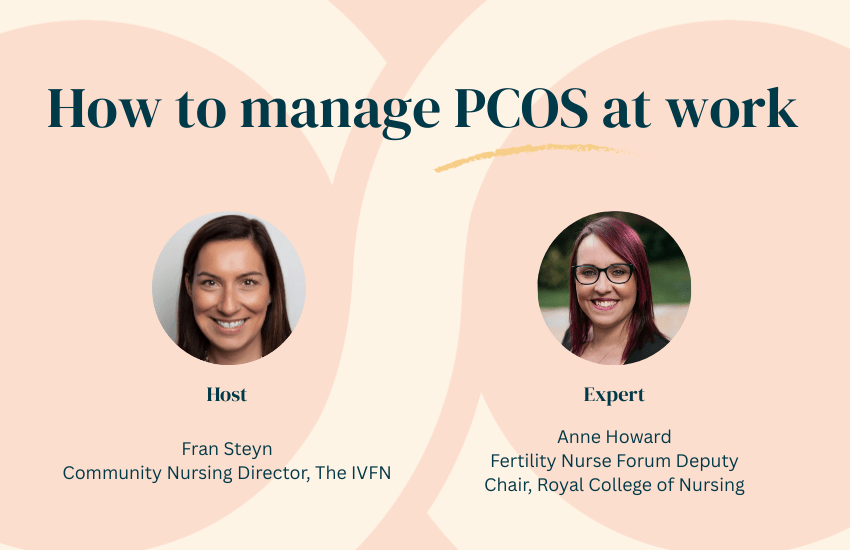Menstrual Health, Menopause and Fertility in the Workplace

Join us to continue reading
This content is for members only, to read the full article log in to your account.
If you don’t have a membership yet, visit our Join us page.
Would you like your employer to pay for this?
For an obligation free chat to discuss how employer membership to The IFVN would work for your business, please contact us using this enquiry form.
Further reading
- Previous event Safe Space – Returning to Work after Miscarriage and Baby Loss
-
Female Alcohol and Fertility: What You Need to Know

-
Female Perimenopause and Fertility Treatment: What you need to know

-
Female Understanding Miscarriage: What it means for your fertility journey

-
Previous event Safe Space: How to manage PCOS at work

-
Female Understanding PCOS: September is PCOS Awareness Month

-
International Surrogacy



